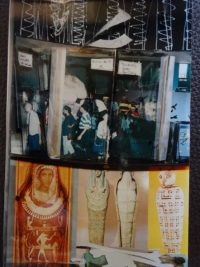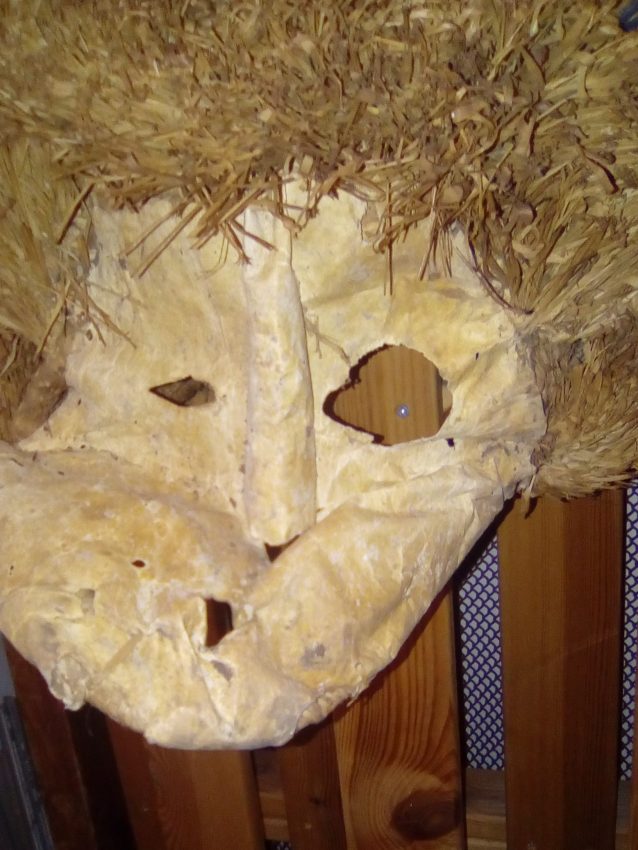Forceful ideas
There are occasions when something is said or written that strikes you with real force. A discussion between Felwine Sarr and Bénédicte Savoy over African
The spirits have fled our culture

A few years later I was on a short course at St Martin’s School of Art. We visited the British Museum and were asked to make a 3D object in response to that experience. I am still very proud of what I conceived, crude as it was. I made a cardboard Neo-Classical Museum filled with dead bodies, tombs and valuable golden objects and I showed that all the spirits, all the ghosts, all the meaning had fled away from the building. I was thinking specifically of the Egyptian tombs and other funerary exhibits at the time. I’ve always enjoyed museums but that day I felt that Europeans valued objects more than ideas. We look at statues, stained glass, and painted walls and no longer experience the spirits they were made to evoke. While
Learning from Zambian artists
The most important thing I learned in Zambia from Zambian and African artists, was that “art” is not the stone, the bronze, the canvas, the ink, or the physical object. Art is what happens when someone interacts with the art, the act, the music, the dance the word, and with the artist’s evocation of the spirit. Art is the spiritual experience that happens in the spaces in between the art and its audience. Performance is the evocation of the other rather than the physical which occupies a liminal space that exists in time. It’s one that can only be occupied by the spiritual, the metaphysical, the ephemeral and the ineffable. I worry that today some Zambian artists may lose this understanding and only make art for money. I do know money is needed – I too, make nothing from my art and books! I need you – I need readers. You are my reason for existing.
As Sarr says, – an
The Shades of the Ancestors
It’s gratifying to discover that one’s instincts about art, culture,
Museums are wonderful and important
Don’t get me wrong. Museums matter. Museums change and increasingly curators are committed to preserving not just the physical object but the spiritual subject too. I learned so much from my visit to the Quai Branly museum of African art in Paris. Many years ago I visited the Livingstone Museum. Two things struck me with force. One was the small amount of money paid to Zambia by the colonial company who acquired its copper mines. The other was the living spirits testified to by the curators, that danced around the ritual objects kept at that time in the museum basement.
